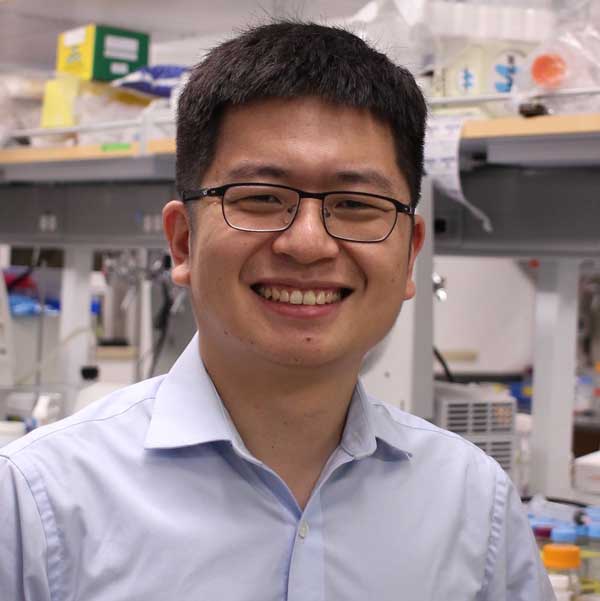The Laboratory for Synthetic Macromolecular Assemblies (SynMA Group) focused on a class of gas-filled protein nanostructures and explores their unique mechanical, acoustic, and optical properties to develop creative solutions for challenges in biomedicine and material science.
Prior to joining Rice, George conducted his postdoctoral research on protein engineering and synthetic biology in the lab of Dr. Mikhail Shapiro at Caltech. There, he and his colleagues pioneered the engineering and repurposing of gas-filled protein nanostructures as genetically encodable and ‘erasable’ contrast agents for ultrasound imaging, MRI, and optical coherence tomography (OCT). George has authored more than 20 peer-reviewed publications, including a lead-authored article featured on the cover of Nature Materials, and was recognized as the Young Investigator of the Year by the World Molecular Imaging Society. George was recruited to Rice Bioengineering through the university’s Synthetic Biology Initiative, and the lab is supported by the $2 million first-time, tenure-track faculty grant from the Cancer Prevention and Research Institute of Texas (CPRIT) and the NIH Pathway to Independence (K99/R00) award.
Research Statement
Protein engineering: We are interested in understanding and designing biomolecules in the so-called mesoscopic domain, which is herein defined to be between the size of a single protein and that of a cell. Many interesting biological objects exist here, including amyloid fibrils, ribosomes, membraneless condensates, viral capsid, and gas vesicles. In this domain, biomacromolecules often undergo pre-programmed assemblies and form complex machinery, resulting in the emergence of concepts such as material elasticity, mechanical strength, phase transition, and compartmentalization. As knowledge is accumulated on these interesting biological objects, we envision an avenue towards applying synthetic biology and engineering principles to them that will provide innovative solutions to fundamental research, human health, and material science.
Gene and cell therapies: Gene therapies use genetic material to treat genetic disorders, and cell therapies aim to use cells, often genetically engineered, to treat various diseases. As the field matures, these therapies are no longer limited to immune cells and viral vectors but will see the expansion into various non-viral gene delivery strategies and other cell types such as stem cells, neurons, and probiotics. The SynMA Group pursues a multidisciplinary approach of genetic engineering and nanomedicine to address the unmet needs in the development of gene and cell therapies, and example current projects include developing noninvasive imaging and remote control methods on genetically engineered cells.
Engineered living materials: Engineered living materials (ELMs) are materials composed of living cells, which can often self-heal, autonomously generate, sense specific molecules in the surrounding environment, and respond to environmental changes. The development of ELMs is a rapidly advancing field at the conjunction between synthetic biology and material science, and will likely see major impacts in smart materials, bioelectronics, building and coating materials, living sensors and therapeutics, engineered tissues, etc. The SynMA Group is interested in combining bionanomaterial design with cellular engineering to create novel ELMs.

